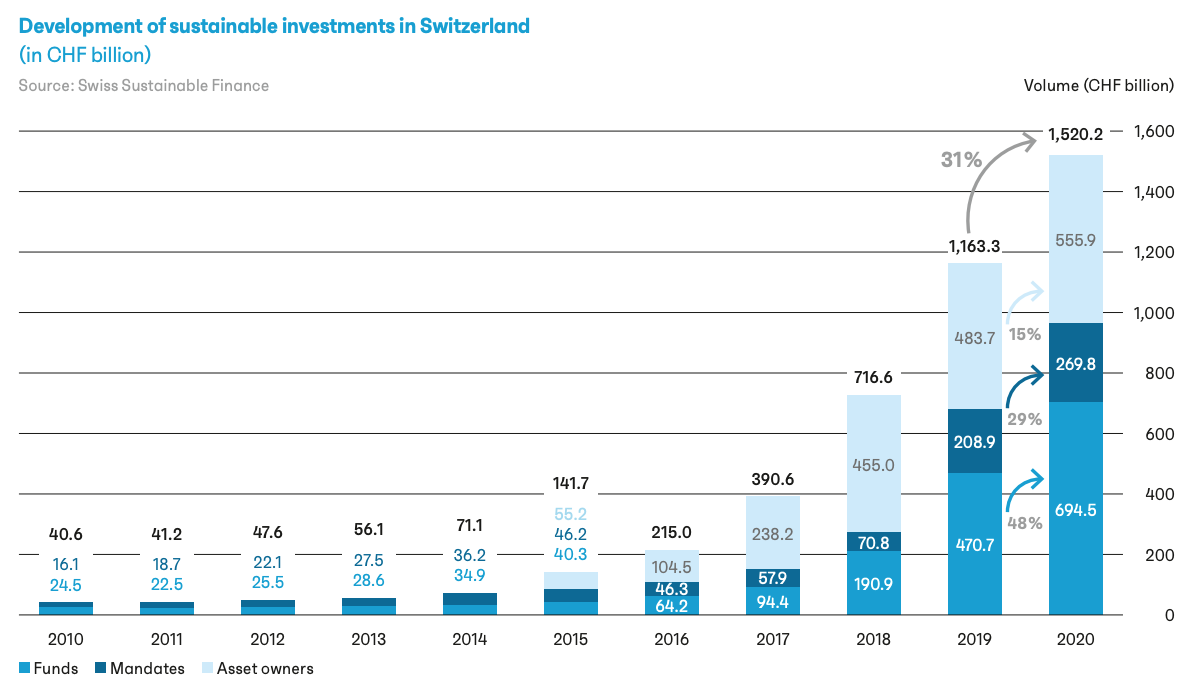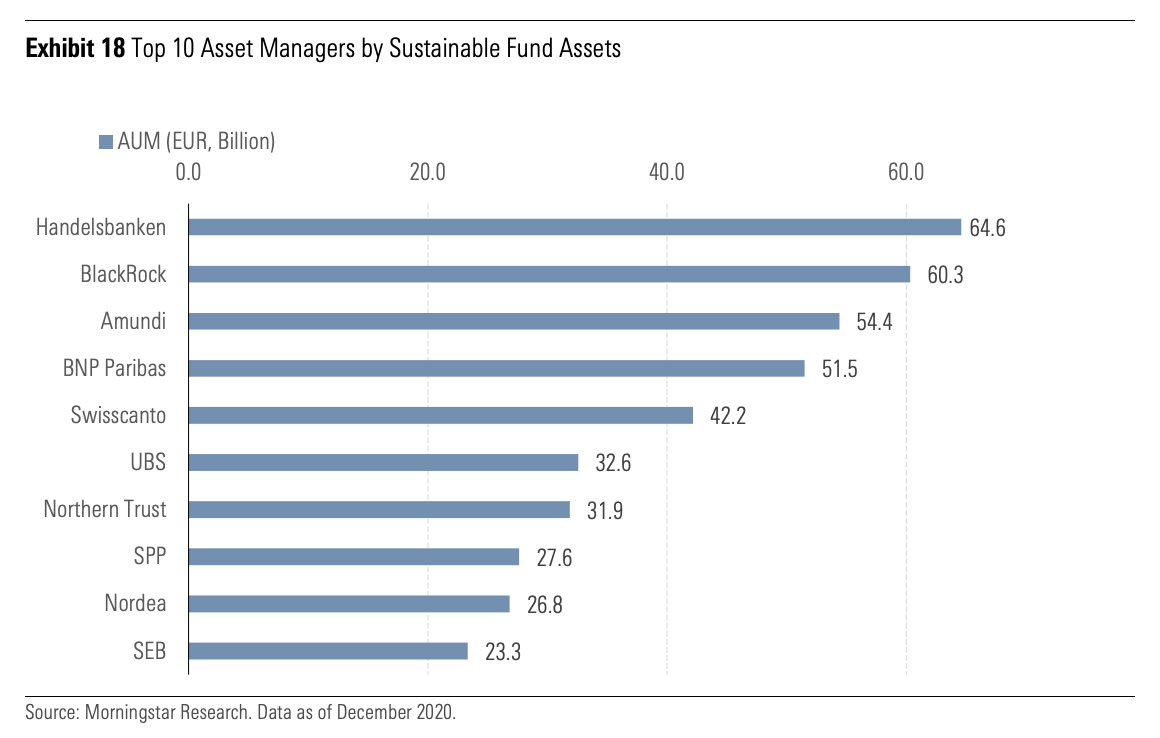
Switzerland Poised to Become a Leading Hub for Sustainable Investment
by Fintechnews Switzerland December 20, 2021As a global financial hub and the world’s top asset management center, Switzerland is poised to become a leading hub for sustainable finance, a new report by the Institute of Financial Services Zug IFZ, part of Lucerne University of Applied Sciences and Arts, and the Asset Management Association Switzerland, says.
Released in September, the Swiss Asset Management Study 2021 aims to provide a comprehensive overview on asset management in Switzerland and shares emerging trends to look out for.
The report identifies sustainable investment as “the most important opportunity in the industry,” a trend it predicts will rise on the back of persistently strong client demand and a regulatory push.
In Switzerland, sustainable investments have enjoyed double-digit growth over the past few years. In 2020, the total Swiss sustainable investment market, which includes sustainable funds, sustainable mandates and sustainable assets of asset owners, increased by 31% to reach CHF 1,520.2 billion as of the end of December, according to a recent study conducted by Swiss Sustainable Finance (SSF).
As a result, for the first time, sustainable investments accounted for more than half of the overall Swiss fund market, recording a share of 52% in 2020 against only 38% in 2019.

Development of sustainable investments in Switzerland, Source: Swiss Sustainable Finance, June 2021
In the broader European region, data show that Switzerland has a growing foothold in the region’s sustainable landscape. A 2021 analysis by Morningstar indicates that out of the top ten asset managers by sustainable fund assets in Europe, two are from Switzerland: Swisscanto (EUR 42.2 billion), ranked fourth, and USB (EUR 32.6 billion), ranked fifth.

Top 10 Asset Managers by Sustainable Fund Assets, Source: Morningstar Research. Data as of December 2020
ESG data challenges
Booming demand for sustainable investment is emerging on the back of changing mindsets amongst investors, a desire to invest in alignment with personal values and evolving regulations that are driving greater disclosure on environmental, social and governance (ESG) factors.
Yet, while demand for sustainable investment continues to accelerate, the sector is still hampered by poor quality and availability of ESG data and analytics.
Data quality is critical in the world of investment management, and especially in the area of ESG investing where lack of mandatory and consistent reporting by companies make it challenging for investors to make an informed decision.
ESG data is ever so critical as greenwashing, a form of marketing spin focusing on deceiving consumers into believing that an organization’s products, aims and policies are environmentally friendly, continues to surge.
Just this September, the US Securities and Exchange Commission and BaFin, Germany’s financial regulator, initiated a probe into allegations that Deutsche Bank’s DWS Group asset-management arm has been misstating several credentials of some of its ESG-labeled investment products.
According to data from the Global Sustainable Investment Alliance, the European market for sustainable investments contracted by US$2 trillion between 2018 and 2020 following the introduction of anti-greenwashing rules.
To address the ESG data challenge, the Swiss Asset Management Study 2021 notes that a number of fintech startups have emerged in Switzerland to make use of cutting edge technologies to allow investors to monitor and assess the risk exposure of organizations, projects and countries.
For example, RepRisk, from Zurich, leverages artificial intelligence (AI), machine learning (ML) and human intelligence to systematically analyze public information and identify material ESG risks. It provides a comprehensive due diligence database on ESG and business conduct risks, with expertise in 20 languages and coverage of 185,000+ public and private companies and 50,000+ infrastructure projects.
Covalence, from Geneva, provides ESG ratings based on AI. And Impaakt, from Geneva as well, runs a collaborative platform that relies on collective intelligence to produce research and assessments of the social and environmental impact of companies.





